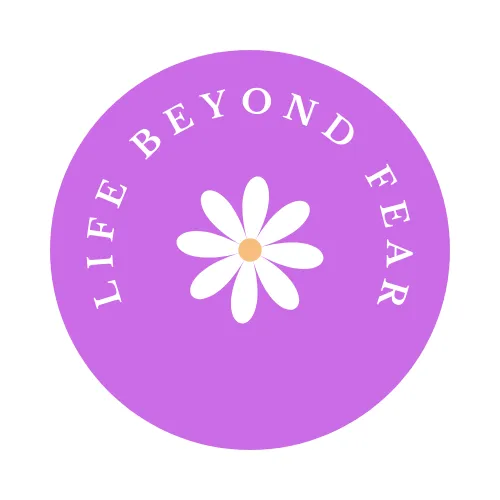There’s a whole world out there
See Newest Blogs

The Deceptive Mask of Love
Rethinking Jealousy: The Deceptive Mask of Love
Unveiling the Misunderstood Dance Between Jealousy and Affection
When jealousy rears its head in relationships, it can masquerade as a twisted form of love—a reflection of affection so intense that it ignites possessiveness.
However, beneath its seemingly romantic allure lies a more profound narrative of emotional complexity.
Could jealousy be more about past wounds and the absence of emotional intelligence than about love itself?

The Nature of Jealousy in Relationships
Jealousy often arises when we perceive a threat to something valuable to us. It’s instinctive, a primal reaction meant to protect our bonds. Yet, equating jealousy with love can be misleading—this reaction might signal deeper emotional struggles rather than genuine affection.
Jealousy as a Mask for Emotional Unavailability
One of the core complexities behind jealousy is its origin in emotional unavailability. When someone experiences jealousy, it might actually reveal their struggle to connect deeply or their fear of vulnerability. This response can be symptomatic of underdeveloped emotional intelligence, where navigating and expressing feelings becomes a challenge.
- Emotional Intelligence Deficit: Jealousy may highlight gaps in understanding one's emotions and managing interpersonal dynamics. Instead of nurturing love, it can drive wedges, fostering insecurity and conflict.
Trauma and the Misinterpretation of Butterflies
Oftentimes, the flutter of excitement interwoven with jealousy—the so-called "butterflies"—is mistaken for love. This physiological response may be more accurately rooted in trauma, a familiar echo of past experiences where love and insecurity intertwined.
1. Trigger Responses: Situations triggering jealousy might activate unresolved trauma, casting shadows on current relationships with reactions disproportionate to the circumstances.
2. The False Excitement: The excitement seen as "butterflies" is often a hyper-aroused state, mistaken for passion but actually a reenactment of past traumas.
Trauma, Insecurity, and the Mind-Brain-Body Loop
The experience of jealousy, often underpinned by deep-seated insecurities, can be exacerbated by past trauma, seamlessly intertwining with our mind-brain-body feedback loop. Understanding this intricate connection sheds light on how trauma echoes through our emotional responses, particularly in romantic relationships.
The Roots of Jealousy in Trauma
Trauma can underpin the emotional landscape where jealousy arises. Past experiences of betrayal, abandonment, or neglect imprint on our psyche, creating a fertile ground for insecurity. These unresolved traumas resurface in moments of perceived threat to our relationships, often manifesting as jealousy and suspicion.
Insecurity as a Legacy of Trauma: Trauma ingrains a profound sense of unworthiness or fear of loss. This insecurity generates a hyper-alertness to potential threats, making jealousy an all too familiar reaction.
The Mind-Brain-Body Feedback Loop
Jealousy sets off a cascade of biological and psychological responses that are rooted in our perception of threat, often amplified by past traumas:
Brain's Threat Response: Trauma conditions the amygdala, the brain's fear centre, to signal danger even when none exists, heightening emotional reactions such as jealousy.
Body's Physiological Reaction: The body responds to these signals with physical symptoms like tension, increased heart rate, or a "gut feeling," reinforcing the perception of a threat. This creates a loop where the mind interprets these physical cues as evidence of a reality in which love and safety are at risk.
Cognitive Reappraisal: Traumatic memories can distort cognitive assessments, leading to misinterpretations of benign situations as threatening. This misalignment fuels jealousy, often without substantial justification.
The Difficulty in Breaking the Cycle
Intertwined with these physiological responses is a mental narrative that can be difficult to disrupt. Jealousy, fuelled by trauma, often allows for the reinforcement of negative self-talk and mistrust, perpetuating a cycle that seems inescapable.
Reflection
How does understanding the physiological nature of jealousy influence your perspective on managing these feelings?
In what ways can trauma-informed practices help you recognise and mitigate triggers for jealousy?
Manipulation of Jealousy: An Entrenchment of Wounds
When jealousy is intentionally provoked, it can deepen pre-existing emotional wounds. Such manipulation exploits insecurities to elicit reactions, exacerbating trauma rather than healing it. This dynamic reinforces unhealthy patterns, perpetuating cycles of suspicion and defence rather than nurturing mutual understanding and trust.
Distinguishing Love from Jealousy
True love is built on trust, empathy, and healthy communication, vastly different from the possessiveness inherent in jealousy. Love encourages growth and security, fostering a space where each person feels valued without fear of comparison or loss.
Cultivating Emotional Intelligence
To distinguish between jealousy and love, cultivating emotional intelligence is crucial. This involves recognising and understanding one's triggers, developing emotional awareness, and practising openness in relationships. By addressing the root causes of jealousy, individuals can nurture genuine connections unhindered by past traumas.
Reflection
- How can you identify when jealousy stems from past traumas rather than actual relationship dynamics?
- What practices can you implement to enhance emotional intelligence and foster authentic love free from possessive tendencies?
Conclusion: Transforming Jealousy into Growth
By challenging the misconception of jealousy as love, we open pathways toward healing and growth. Understanding the underlying dynamics allows for the transformation of jealousy into an opportunity for deeper self-awareness and relationship enrichment. In doing so, we foster relationships predicated on true affection, not fear-based reactions.
Reflection
How do these insights reflect on your perceptions of jealousy within relationships?
Where do you see opportunities for cultivating stronger, more emotionally intelligent connections in your life?

Copyright ©LifeBeyondFear.Org. All Rights Reserved.
Unlock the secrets to improving relationships at work, at home, and most importantly, with yourself. Discover the transformative power of meaningful connections and self-understanding.
